第49章 33(1)
THE STRANGE DOUBLE LOYALTY
PEOPLE OF THE MIDDLE AGES AND HOW IT LED TO ENDLESS QUARRELS BETWEEN THE POPES AND THE HOLY ROMAN EMPERORS.
IT is very difficult to understand the people of by-gone ages. Your own grandfather, whom you see every day, is a mysterious being who lives in a different world of ideas and clothes and manners. I am now telling you the story of some of your grandfathers who are twenty-five generations removed, and I do not expect you to catch the meaning of what I write without re-reading this chapter a number of times.
The average man of the Middle Ages lived a very simple and uneventful life. Even if he was a free citizen, able to come and go at will, he rarely left his own neighbourhood.
There were no printed books and only a few manuscripts.
Here and there, a small band of industrious monks taught reading and writing and some arithmetic. But science and history and geography lay buried beneath the ruins of Greece and Rome.
Whatever people knew about the past they had learned by listening to stories and legends. Such information, which goes from father to son, is often slightly incorrect in details, but it will preserve the main facts of history with astonishing accuracy. After more than two thousand years, the mothers of India still frighten their naughty children by telling them that "Iskander will get them," and Iskander is none other than Alexander the Great, who visited India in the year 330 before the birth of Christ, but whose story has lived through all these ages.
The people of the early Middle Ages never saw a textbook of Roman history. They were ignorant of many things which every school-boy to-day knows before he has entered the third grade. But the Roman Empire, which is merely a name to you, was to them something very much alive. They felt it. They willingly recognised the Pope as their spiritual leader because he lived in Rome and represented the idea of the Roman super-power. And they were profoundly grateful when Charlemagne, and afterwards Otto the Great, revived the idea of a world-empire and created the Holy Roman Empire, that the world might again be as it always had been.
But the fact that there were two different heirs to the Roman tradition placed the faithful burghers of the Middle Ages in a difficult position. The theory behind the mediaeval political system was both sound and simple. While the worldly master (the emperor) looked after the physical well-being of his subjects, the spiritual master (the Pope) guarded their souls.
In practice, however, the system worked very badly. The Emperor invariably tried to interfere with the affairs of the church and the Pope retaliated and told the Emperor how he should rule his domains. Then they told each other to mind their own business in very unceremonious language and the inevitable end was war.
Under those circumstances, what were the people to do, A good Christian obeyed both the Pope and his King. But the Pope and the Emperor were enemies. Which side should a dutiful subject and an equally dutiful Christian take?
It was never easy to give the correct answer. When the Emperor happened to be a man of energy and was sufficiently well provided with money to organise an army, he was very apt to cross the Alps and march on Rome, besiege the Pope in his own palace if need be, and force His Holiness to obey the imperial instructions or suffer the consequences.
But more frequently the Pope was the stronger. Then the Emperor or the King together with all his subjects was excommunicated. This meant that all churches were closed, that no one could be baptised, that no dying man could be given absolution-- in short, that half of the functions of mediaeval government came to an end.
More than that, the people were absolved from their oath of loyalty to their sovereign and were urged to rebel against their master. But if they followed this advice of the distant Pope and were caught, they were hanged by their near-by Lege Lord and that too was very unpleasant.
Indeed, the poor fellows were in a difficult position and none fared worse than those who lived during the latter half of the eleventh century, when the Emperor Henry IV of Germany and Pope Gregory VII fought a two-round battle which decided nothing and upset the peace of Europe for almost fifty years.
In the middle of the eleventh century there had been a strong movement for reform in the church. The election of the Popes, thus far, had been a most irregular affair. It was to the advantage of the Holy Roman Emperors to have a well-disposed priest elected to the Holy See. They frequently came to Rome at the time of election and used their influence for the benefit of one of their friends.
In the year 1059 this had been changed. By a decree of Pope Nicholas II the principal priests and deacons of the churches in and around Rome were organised into the so- called College of Cardinals, and this gathering of prominent churchmen (the word "Cardinal" meant principal) was given the exclusive power of electing the future Popes.